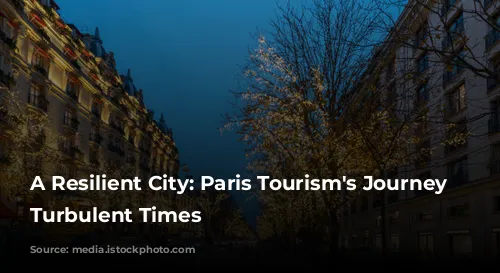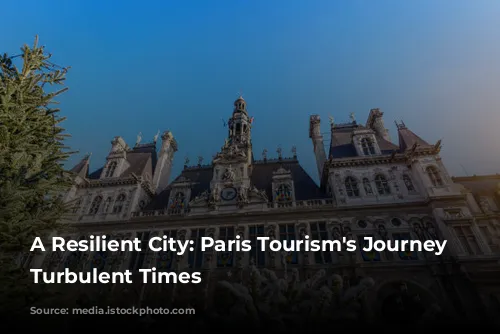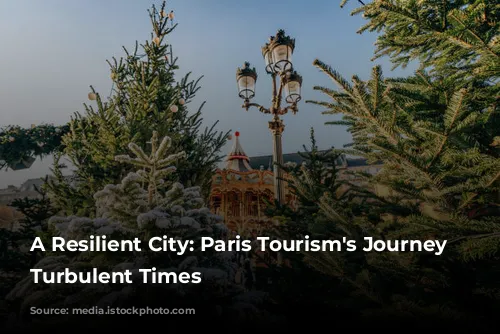This article will explore the fascinating journey of Paris’s tourism sector, highlighting its resilience in the face of various challenges. We’ll delve into the city’s enduring appeal, its remarkable rebound after the pandemic, and the ongoing transformation of its hotel landscape.
The City of Lights Faces Headwinds:
Paris, a global travel icon, has faced multiple hurdles in recent years. The aftermath of terrorist attacks in 2015 and 2016, the disruptive “yellow vest” protests of 2018 and 2019, and transportation strikes in 2019 all took a toll on the city’s tourist influx. The COVID-19 pandemic then dealt a further blow, with travel restrictions decimating visitor numbers in 2020.
Despite these setbacks, Paris has demonstrated remarkable resilience. The city’s inherent charm, rich history, and world-class attractions continue to attract travelers from across the globe. Government support has played a key role in bolstering the tourism sector.

A Resurgence Fueled by Resilience
Paris’s rebound from the pandemic’s impact is a testament to its enduring appeal. The easing of travel restrictions and widespread vaccination efforts in France and Europe led to a surge in tourist numbers beginning in June 2021. This resurgence fueled a significant market recovery during the latter half of the year, echoing the overall positive trajectory of France’s economy.
The resilient nature of Paris’s tourism market can be attributed to several factors:
-
A well-balanced mix of customers: Paris attracts a diverse range of visitors, from leisure travelers to business professionals and event attendees. This diversified demand base provides stability and mitigates the impact of any single factor.
-
Broad seasonality: The city’s attractions and activities appeal to travelers throughout the year, offering a consistent stream of visitors.
-
The return of face-to-face events: As the world reopens, conferences, trade shows, and other events are returning to Paris, boosting the tourism sector.
-
Major events on the horizon: The upcoming Rugby World Cup in 2023 and the Olympic Games in 2024 are expected to draw a significant influx of international visitors, cementing the return of tourism to pre-pandemic levels.

A Transformation in the Parisian Hotel Landscape
Paris’s hotel market has undergone a significant evolution in recent years, with a clear shift towards luxury and upscale accommodations. This trend is reflected in the growing number of upscale and luxury hotels while the number of non-classified and budget hotels remains stagnant or even declines.
The city’s hotel landscape has been enriched by the addition of several high-profile properties in 2021. These include the Kimpton St Honoré Paris, the Cheval Blanc Paris, the Madame Rêve, the Bulgari Paris, and the first Soho House in France.
These new openings demonstrate the continued confidence in the Parisian hotel market and its ability to attract discerning travelers. The rise of luxury and upscale hotels is driven by increasing demand from international tourists seeking sophisticated experiences, and the trend is expected to continue.

A City of Enduring Appeal
Paris’s tourism sector has weathered many storms. The city’s resilience, supported by its inherent appeal, diverse demand sources, and a robust government support system, has allowed it to rebound from the pandemic and continue its journey towards a thriving future.
The ongoing transformation of the city’s hotel landscape, with a focus on luxury and upscale offerings, indicates a commitment to cater to the evolving needs and preferences of travelers. Paris continues to be a top destination for hotel investors, driven by strong economic fundamentals and the city’s enduring appeal as a global travel hub.
